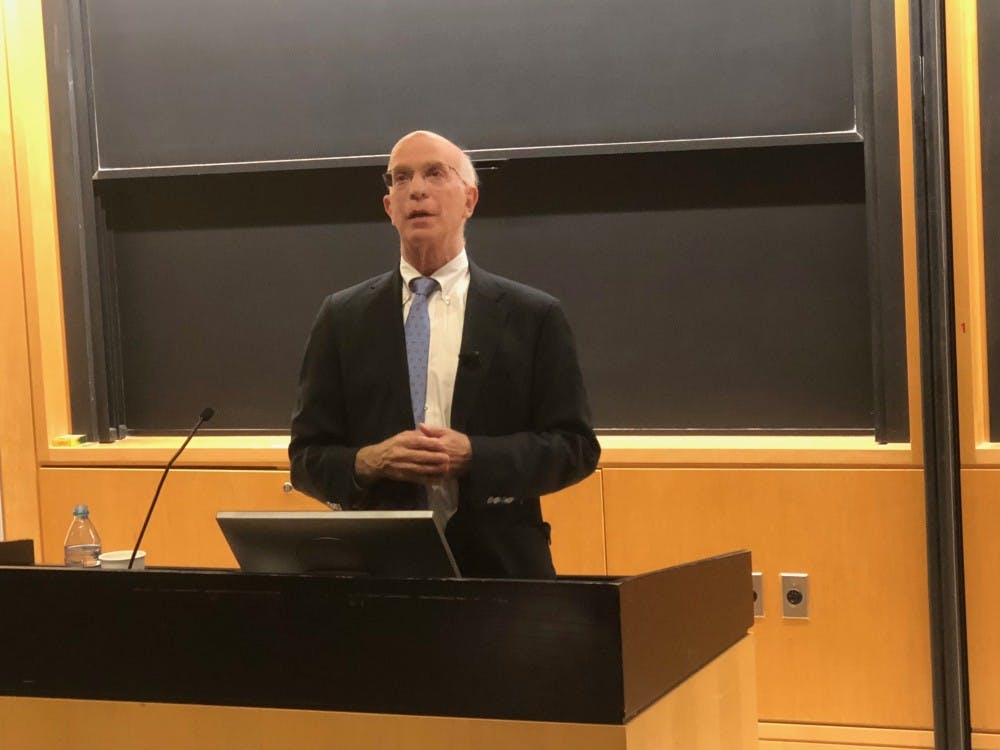At 10 a.m. on Saturday, Oct. 13, in a lecture he delivered to a large audience of alumni, faculty, and other members of the Princeton community at McDonnell Hall, Alan Blinder, professor of economics and public affairs, discussed his new book entitled “Advice and Dissent: Why America Suffers When Politics and Economics Collide”, and called for public literacy in economic policies.
Blinder also criticized economists for ignoring policy issues and politics entirely. In his book, he argued that politicians use economists merely as a tool to garner support — what he dubbed “the lamppost theory” — to find credibility for policies in which they do not have a hand, have been crafted without their input, and will go into place anyway. This, he argued, is not good for either party, and it particularly harms the electorate.
“With economic illiteracy as widespread as it is today, a popular democracy is painfully vulnerable to the self-serving machinations and hucksterisms of economic snake-oil salesmen,” Blinder wrote in the book.
In the lecture, Blinder noted there is a wide gap between academics and politicians, and he said the former can learn from the latter. Economists should stop to focus too much on substance; they need to keep their messages simple, and above all, they need to pay attention to policy process.
Political policy-making tends to be path dependent, according to Blinder.
“We economists speak so logically and dryly. If you do that in politics, you don’t get very far,” he said. “We do our calculations with arithmetics; politicians do not do that — everything gets weighed by political influence. To succeed in economics, it helps to be smart and have good ideas. To succeed in politics, you need people skills.”
Blinder emphasized the need for economic education.
“Until we get some basic level of literacy in economics to be more prevalent in the voting population, we are not going to succeed. The president has a bully pulpit and he could use that to good effect, if he chooses to,” he said.

Attendees of the lecture praised the economist for sharing his insights publicly.
“In the current environment, it is important that academic economists present their ideas directly to the public, as Professor Blinder is doing with his book,” said Smita Brunnermeier, a University lecturer of economics and public affairs.
“Not every economist will have the same policy prescription for the same problem. Still, it is better for society if there is a healthy competition of ideas,” she added.
Many agreed with Blinder’s main argument.

“The clear take away is economics education. It really needs to happen at the high school level and the undergraduate level, but the economists are only interested in scholarship and research. Economic education is something institutions like Princeton Economics Department are to be interested in doing but are not,” said Rene Chalom ’17, who attended the lecture.
“There is a divide between the political world and the analytical world, but you cannot argue against the need for education,” said Arch Davis ’69, who was also in the audience.
“To influence public policy debates, economic knowledge must be made accessible, intelligible, and believable to the body politic — even if it is just a matter of getting the facts straight. That is why people like me occasionally write books like this,” Blinder wrote in his book.








